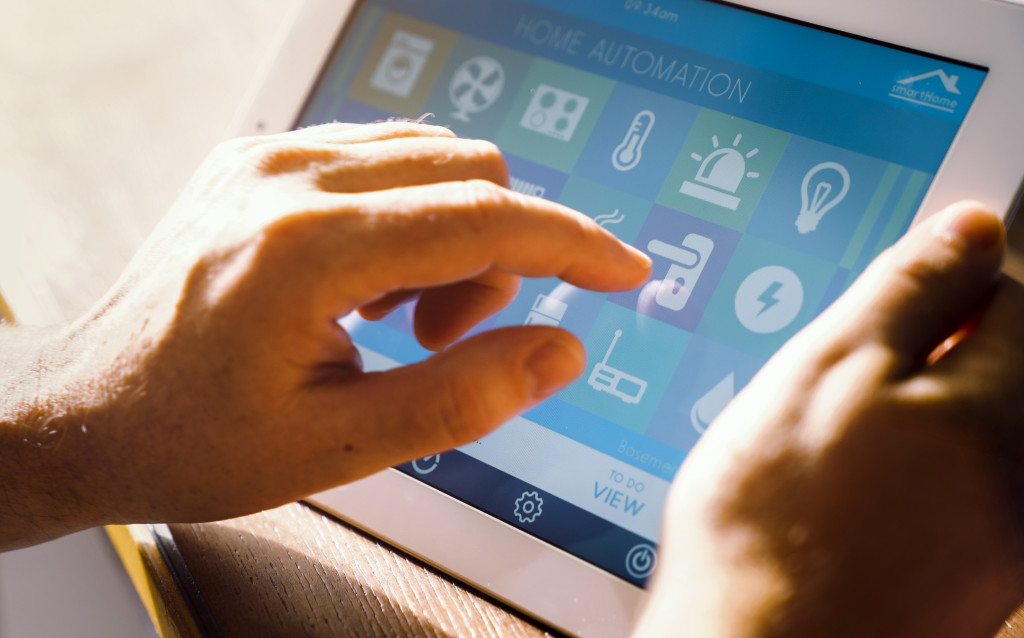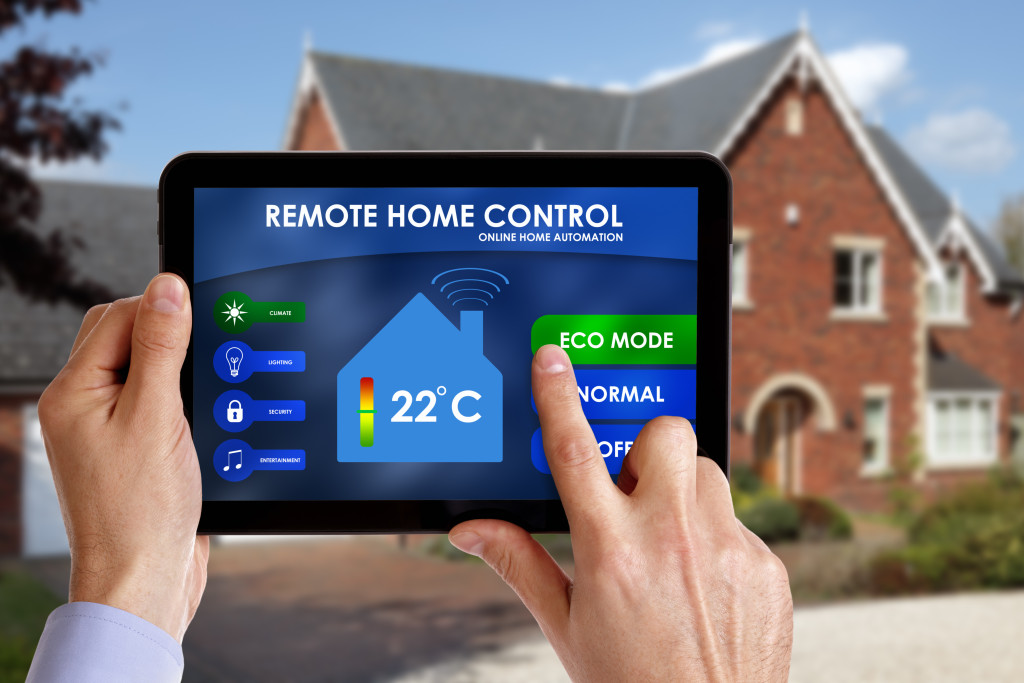With burglars becoming smarter by the day, you can’t afford to take chances with your home security. You need to stay a couple of steps ahead of these criminal elements. That means securing both the interior and exterior parts of your home.
If your perimeter fence leaves a lot to be desired, hire a reliable fence contractor to update it. An imposing physical barrier dissuades the average burglar from breaking in.
But a smart home security system safeguards your valuable from skilled burglars. It also comes with other handy benefits to improve your life.
Home Security and Automation
Traditionally, smart security systems were the reserve of the rich and affluent homeowners. Not anymore. Not with the Internet of Things putting this technology within everyone’s reach.
Anyone can secure their abode with a smart home security set up without breaking the bank. The IoT lets you monitor and control your home security without a major overhaul.
An entry-level home security setup is simple. It includes sensors on windows and doors, motion detectors, and a communication hub. It’ll connect to your Wi-Fi to let you control and monitor the home through your smartphone.
But if you’re up to it, you can build a comprehensive system and turn your home into a fortress. Elaborate systems include door locks, cameras, garage door openers, sirens, lights, and more.
With so many options available, it’s tempting to get a home security setup with all the bells and whistles. But, it’s best not to rush. Features to consider include connectivity, costs, power usage, size, and signal range
Naturally, smaller systems with basic components can run on Zigbee and Z-Wave technology. But elaborate systems with video surveillance require a Wi-Fi system with broadband speeds. Such systems have a higher cost implication because they use premium equipment.
DIY Home Security Setups
DIY is the best route if you’re handy with a crimping tool and have electrical engineering skills. Most budget shoppers prefer to rig up their smart home systems to lower costs. A DIY installation eliminates costly installation charges and recurring fees.
Most DIY home security systems are easy to rig and install because they’re sold as configurable kits. You can configure and customize them to fit your home and security needs. Best of all, you can start small and add more features and sensors later. Naturally, your budget determines the type and complexity of your home security system.
A basic system will support wireless protocol but accommodates fewer add-on components. An expensive rig uses many wireless protocols and can handle dozens of components.
Most DIY systems are self-monitored. They will alert you when a device goes off and it’s up to you to inform the local authorities if necessary.

Professional Smart Home Security Solutions
Unlike the DIY security setups, high-end systems need professional installation. Naturally, the complexity of these systems warrants a higher price tag.
Professional security firms offer round the clock monitoring. They’ll also need you to sign a multi-year contract. Breaking such a contract is likely to cost you a hefty termination fee.
Security companies often use smart hubs that use RF, Wi-Fi, and more to monitor home security. The devices grant them control over various components in the security system.
Seamless installation is the biggest perks of a professionally installed home security system. The security company dispatches technicians to set it up. They will also show you how the system works and ensure you can operate it seamlessly.
If the smoke alarm goes off in your home, the company contacts you first. They will try and raise you on the two-way control panel. If they can’t reach you, they’ll try calling you on the listed phone number. If you fail to respond, the security company agent will alert 911 and have them dispatch a unit to your home.
Voice control is another perk of most high-end home security systems. You can control various components through Google Assistant, Alexa, and Siri. Voice control allows you open and unlock doors or arm your system with spoken commands.
You can also opt for the IFTTT (If This Then That) feature for greater convenience. This feature allows you to create custom security commands. For instance, you can program your floodlight to come on whenever the garage door opens.
Evolving technology makes it easy for the average homeowners to secure their homes. You can use the affordable DIY setup or installing a professional system. A smart home security system pairs with your smartphone to put you firmly in charge of your living space.

